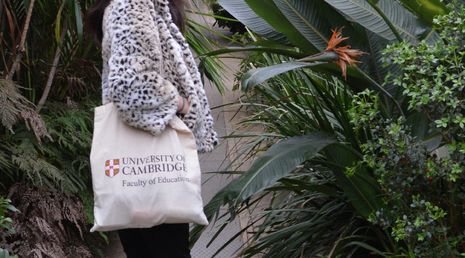The importance of studying education
Leoni Boyle discusses how our summer of discontent has thrown a light on the growing need to think about education in an academic, analytical framework.

I am so proud to be studying Education. It feels as though we as a field of study are beginning to ride the wave of public interest and concern. Research that will follow in subsequent months and years will be of particular interest, as the events of 2020 have demonstrated the urgent need to rethink education systems. Everyone is questioning what education in the UK should look like, and what measures should be put in place to make up for lost educational time. The broad work of Education researchers and theorists has never, in my lifetime, been of such significance.
Education bidirectionally interacts with society: education both forms society and is formed by society. You, as a reader, are partially a product of different education systems. Thus, the exploration of what education means is fundamentally in the interest of every single reader of this article.
In the wake of COVID-19, public interest in education is greater than ever. From the decision to close schools, the move to online learning, the disparity between private and state school resources, or the A-Level results scandal, this year has demonstrated more than any other the need to not only respect but also to celebrate Education as a discipline.
“...a truly effective democracy is only achievable through an education system that takes into account systemic inequalities.”
COVID-19 has re-focused attention on the systemic inequalities in our education system. The 2020 A-Level results fiasco saw nearly 40% of A-Level grades downgraded, with state schools the most negatively affected. The turmoil was intensified by Ofqual’s suspension of the advice on how to appeal within days of the A-Level results’ publication, leaving students in limbo — only for the government to announce a U-turn on results just days later. The chaos and emotional turbulence that ensued during this period were immeasurable, and raised fundamental questions about the UK education system. How can we accurately assess grades? Are teachers’ judgements and authority respected? How can systemic classism be changed in the education system?
The intense emotional response provoked by government decisions reflects widespread concern regarding the state of education. The public anger at the apparent injustice of the initial grading and the algorithm used to achieve it was tangible. We need to seize upon these feelings and drive home the message that a truly effective democracy is only achievable through an education system that takes into account systemic inequalities. This is the key to developing a prosperous, democratic and equitable society.
“Education helps to shape who you are, where you are, and what you can become.”
Since starting the Education Tripos, I, alongside other Education students, have heard pejorative comments made about our degree, often questioning Education’s place as a discipline at Cambridge. This demonstrates an ignorance of the value of Education, but 2020 has encouraged many to become more enlightened about what Educational research is and why it is so important. The most constructive course of action is to continue the debates on what education means and what it should look like. Education as a discipline not only draws on other fields of research, but actively engages with fields such as Sociology, Philosophy, Economics etc., and requires nuanced conceptualisations of different issues in order to create a successful system. When nuances aren’t considered, you end up with an algorithm that spits out unjust grades and which further jeopardises disadvantaged students.
This year also saw the resurgence of the Black Lives Matter movement, which has catalysed the discourse over race and racism in education. The Black Curriculum is an example of a campaign which is not only advocating for Black British history to be mandatory in the curriculum, but is also holding workshops across schools in the UK to educate students on Black British history. The documentary series The School That Tried To End Racism aired in June this year, examining how racism can be explored within a classroom environment. It was indeed a “gripping” and “sobering” watch.
To those who still doubt the importance of the study of Education, I would like to remind you that education, in the many various forms it can take, is a human right. Education helps to shape who you are, where you are, and what you can become. We must all view the study of Education as critical in the journey towards developing a more progressive society. Watch this space.
 News / Judge Business School advisor resigns over Epstein and Andrew links18 February 2026
News / Judge Business School advisor resigns over Epstein and Andrew links18 February 2026 News / Gov grants £36m to Cambridge supercomputer17 February 2026
News / Gov grants £36m to Cambridge supercomputer17 February 2026 News / Hundreds of Cambridge academics demand vote on fate of vet course20 February 2026
News / Hundreds of Cambridge academics demand vote on fate of vet course20 February 2026 News / CUCA members attend Reform rally in London20 February 2026
News / CUCA members attend Reform rally in London20 February 2026 News / Union speakers condemn ‘hateful’ Katie Hopkins speech14 February 2026
News / Union speakers condemn ‘hateful’ Katie Hopkins speech14 February 2026









